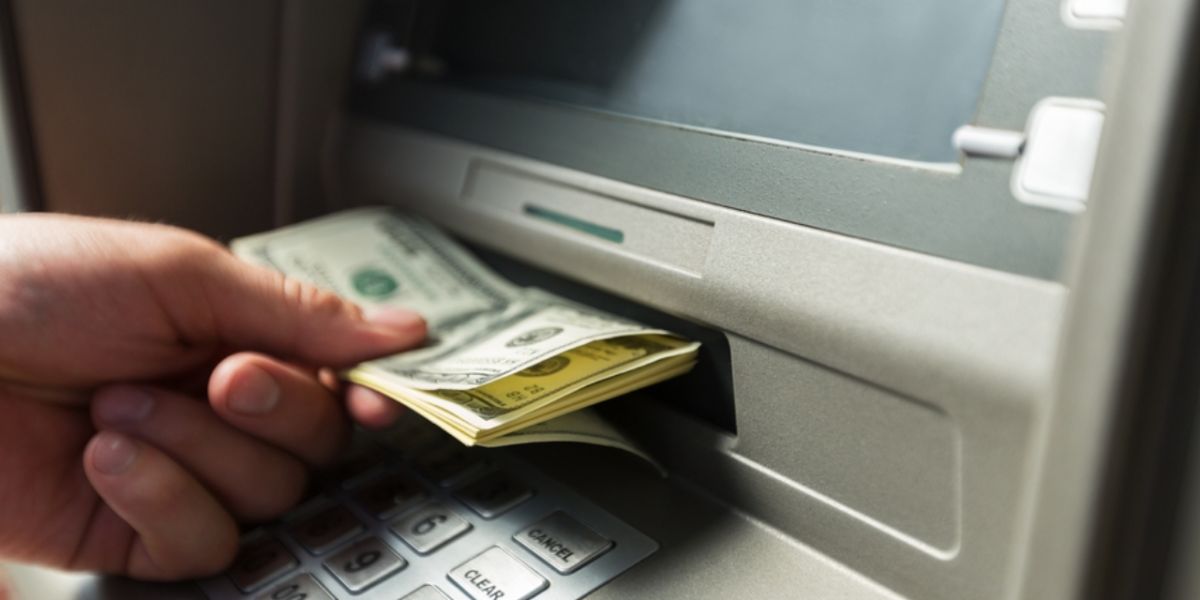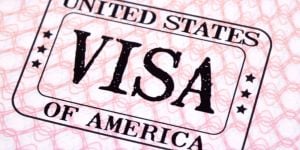
Opening a bank account in the US is an important step for managing your finances and is an essential part of moving to a new place. Bank accounts simplify paying bills, receiving your salary, and helping you to establish a credit history. Beyond the practicality of day-to-day financial transactions, a US bank account provides a safe place to keep money that won't incur the conversion charges that continuing to use a foreign bank account involves. Having a bank account with a healthy balance is also something you can use to show potential landlords or creditors that you have a stable financial life in the US.
The US has a very diverse banking landscape. Alongside big names like Bank of America, you will also find lots of smaller regional and state banks, credit unions, investment banks, online banks, and more. Recently there has been a major rise in digital-only banks and fintech services like Revolut, Wise, and N26, which often cater to international users or travelers and offer flexible, low-fee currency conversion and transfer options for those with bank accounts in different countries.
Good to know:
Even though the United States is a very technologically advanced country, when it comes to banking, things can still be rather old school. A lot of banks are not very multicurrency-friendly and impose heavy fees on foreign transactions. This is where the digital only banks can come in handy as they provide better options for multi currency use and charge lower international fees. Brick and mortar banks in the US tend to rely on face-to-face interactions, and you may often be asked to go to the bank office in person to handle the paperwork. Though cheques are being phased out in many parts of the world, they are still a common currency in the USA.
How to open a bank account in the US?
As mentioned above, there are many banks in the United States offering a variety of services. If you are a resident of the country, you can open an account in pretty much any bank of your choosing.
The documents you will need to provide and the specifics of the process might vary from bank to bank. However, in most cases, you will be asked to provide the following information to open a personal bank account as a US resident:
- Social Security Number (SSN) or Individual Tax Identification Number (ITIN);
- Passport or another form of ID;
- US address and proof of address (for instance, a utility bill or regular correspondence);
- Minimum deposit;
- A US phone number (if you want to access online banking).
If you are a non-resident, things can get a bit trickier.
Firstly, as a non-resident, it's best to set your sights on bigger banks like Bank of America or Citibank.
Smaller local banks may not be equipped to deal with non-resident account requests.
Before making an appointment at your chosen bank, it's best to call in advance and check what their requirements are for non-residents, as these tend to vary from bank to bank.
Here are some things you should confirm in advance:
- Will you need an SSN or an ITIN?
- Will you need a US address? What kind of proof will you need to provide?
- What is the minimum deposit?
- Will you need to prove your source of funds?
Due to new regulations under FATCA (Foreign Account Tax Compliance Act) and the AML Act (anti–money laundering), some banks may have stricter requirements or decline to open accounts for non-residents. It's best to confirm eligibility before applying to avoid an outright rejection.
Digital-first banks may allow account setup from abroad without a US address, and they are increasingly used by expats and holidaymakers as an alternative.
Do you need an SSN or an ITIN?
Most banks require an SSN for you to open an account.
An SSN is used to track individuals for tax purposes and is a standard form of ID in the US. Another option for expats is the ITIN. These IDs are issued based on your visa type.
As a non-resident, you may not be able to obtain an SSN. In this case, having an ITIN can substantially help your case: a lot of banks will accept an ITIN if you don't have an SSN.
An ITIN is a tax identification used by the IRS (Internal Revenue Service) for taxing non-residents. Note that to get an ITIN, you will need to have a connection to the United States, due to which you are required to file tax returns. You can check out the IRS website for more information on how to apply for an ITIN. You can also get an IRS-Certified Acceptance Agent to help you with the process of applying for an ITIN.
If you don't have an SSN or an ITIN, some banks will let you open a bank account with your passport and proof of address only. However, this is not a guarantee and depends on a lot of factors like your nationality, tax residence, source of income, etc. You will generally have more chances to do this in larger popular banks that have a lot of experience dealing with non-resident clients.
When choosing a bank, you should also consider your financial habits. You may want to have access to a bank with a lot of ATMs or branches around the city or a user-friendly website to be able to pay bills online. Be sure to ask about associated fees and required minimum balances.
While a lot of banks do require a face-to-face appointment to open an account, there are some that will also let you open an account remotely. Digital banks in particular may allow you to open an account entirely online without visiting a branch.
Some of the banks that are popular with expats in the US include Bank of America, Citibank, Chase Bank, Wells Fargo, and others.
Types of bank accounts in the US
The two most common types of bank accounts in the United States are checking and savings accounts. Checking accounts are used for frequent deposits and withdrawals. Most checking accounts are used for salary deposits and to pay bills. If you open a checking account, you will be given both a checkbook and a debit card. Savings accounts are for long-term deposits and accrued interest. These accounts often have a minimum balance requirement, and interest rates can vary by bank.
Good to know:
It is common for US employers to ask for your checking account number in order to offer direct deposit of your salary instead of giving you a paper check.
Many banks offer free checking accounts but will charge fees for overdrafts, transfers, or cash withdrawals from ATMs outside of their network. Most importantly, look for a bank that guarantees your deposits through the Federal Deposit Insurance Corp (FDIC). The FDIC insures deposits up to USD 250,000 in case a bank fails.
How to get a credit card in the US
A credit card will be hard to obtain when first arriving in the US until you have established a satisfactory credit history. Your credit history is a record of how well you handle bills for purchases bought on credit, including information about late payments and account overdrafts. In other words, the more you pay your monthly bills on time, the better your credit history. Your SSN or ITIN number links you to your credit history, so it is a requirement to have either an SSN or an ITIN. After a few months of positive payment activity, you will be able to apply for a credit card.
Good to know:
The Consumer Financial Protection Bureau (CFPB) is a US government agency established in 2011 to protect consumers from unfair banking and lending practices. If you have questions about banking, credit cards, or your credit score, visit their website.
Mobile banking tools in the USA
Many banks have mobile banking integrated into their products; however, there are some very popular payment options that are third parties, some of which are specific to the USA. Some good mobile banking options outside of what your bank offers include:
Venmo
While not a traditional bank, Venmo is a hugely popular peer-to-peer payment app that allows users to send and receive money easily. It's commonly used for splitting bills and making casual payments among friends. It's become almost ubiquitous among young people as an easy way to transfer money without having to go through a more complex payment process or deal with cash.
PayPal
Similar to Venmo, PayPal is widely used for online transactions and money transfers. It offers a range of services beyond just peer-to-peer payments, including online shopping and business transactions. It can also be used for international payments and is available worldwide, whereas Venmo is specific to the USA.
Your credit score and understanding the US credit system
For expats navigating the United States, understanding the intricacies of the US credit system and the significance of a credit score is crucial, not only in terms of your financial stability but also because it actually dictates your access to various services. Many countries do not have a credit system like the United States, so hearing people talk about “good credit” and “bad credit” and checking their scores can be bewildering.
For starters, the US credit system is built on the evaluation of an individual's creditworthiness, represented by a three-digit credit score. This score, ranging from 300 to 850, is based on things like payment history, amounts owed, length of credit history, types of credit in use, and new credit accounts. A higher credit score generally reflects a good financial history, increasing the likelihood of you obtaining loans, credit cards, and desirable interest rates.
Expatriates may find building credit in the US challenging, as they are arriving without any history for their credit score to be based on. To establish credit, you could get a secured credit card, where your deposit serves as collateral. Timely payments and responsible credit use contribute positively to your credit score over time. Becoming an authorized user on someone else's credit account or exploring credit-builder loans are avenues to kickstart your credit journey.
Regularly monitoring your credit report is necessary to identify errors or potential fraud. Annualcreditreport.com provides free access to your credit reports from the major reporting agencies. Staying proactive in managing your credit is important as a strong credit score allows you access to loans but also impacts rental agreements, insurance, and even employment opportunities.
What to do if you are unable to open a bank account in the US
In cases where individuals find it challenging to open a traditional bank account in the USA, especially for those residing temporarily without access to an ITIN or SSN, alternative financial solutions become crucial and digital financial platforms are likely the most viable option.
Services like Wise (formerly TransferWise) and PayPal offer user-friendly solutions that can be great for those who are frequent travellers. Wise provides a borderless multi-currency account that enables users to hold and transfer money in different currencies at competitive exchange rates. Additionally, PayPal offers a versatile digital wallet, facilitating online transactions and serving as an effective means for sending and receiving money. Newer digital banks such as Revolut and N26 also offer online-only banking with low fees and more relaxed onboarding practices, even for non-residents
Prepaid debit cards, such as those offered by Green Dot or NetSpend, are also an option, as they often do not require a traditional credit check. While these alternatives may not replace the comprehensive banking services offered by traditional banks, they can be valuable short term options.
Useful links:
Consumer Financial Protection Bureau
We do our best to provide accurate and up to date information. However, if you have noticed any inaccuracies in this article, please let us know in the comments section below.











